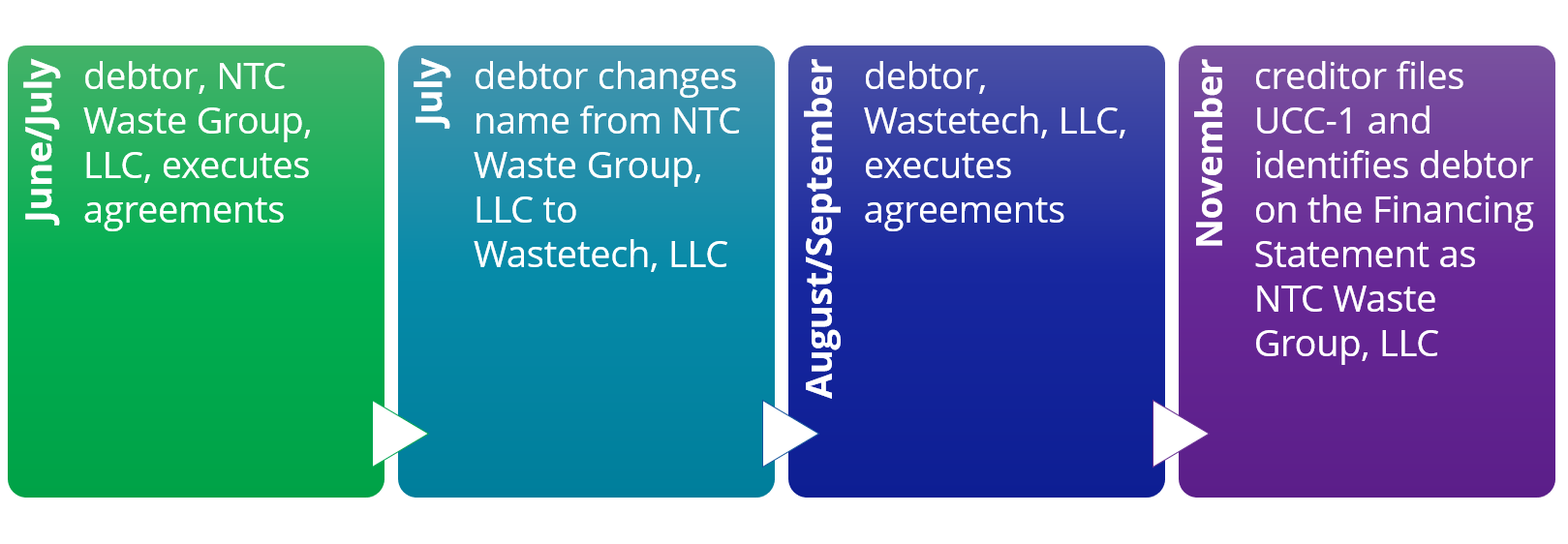
No Mechanic’s Lien Rights for Rental Equipment in Pennsylvania; Companies Should Consider UCC Filings
Originally published in the Credit Research Foundation’s publication, Perspective by CRF (Q4 2023)
The Pennsylvania Superior Court released a crushing decision, wiping out mechanic’s lien rights for those who provide rental equipment to construction projects. Fortunately, mechanic’s liens aren’t the only form of security available to the equipment rental industry. In today’s post, we’ll review this recent Pennsylvania legal decision and how UCC filings are poised to be the payment leverage rental equipment companies need.
The Case at a Glance
The Result: Mechanic’s lien rights do not extend to rental equipment providers. Rental equipment isn’t incorporated into the improvement; therefore, it isn’t classified as ‘materials’ under Pennsylvania’s statute.
Background
R.A. Greig Equipment Company (Greig) leased a Telehandler-2019 Haulotte LT 9055 SN#2065360 to Mark Erie Hospitality, LLC (Mark Erie) for the improvement of a hotel lot and a second vacant lot.
In March 2022, Greig filed a mechanic’s lien to recover $56,392 in unpaid rental charges and $135,311 in equipment replacement costs (the equipment was allegedly damaged on site).
Mark Erie objected to Greig’s mechanic’s lien, and the Trial Court sustained the objection when it concluded the equipment and rental payments weren’t “materials” as defined under Pennsylvania’s statute. Fast forward, Greig appealed the Trial Court’s decision and here we are in front of the Superior Court.
Superior Court’s Decision: No Lien Rights for Rental Equipment
The Superior Court sought to answer several questions in its review of the case, but the one we are most interested in is whether Greig’s rental equipment and rental payments are considered “materials” and lienable under Pennsylvania’s mechanic’s lien law.
Under Pennsylvania’s mechanic’s lien law, Title 49 P.S. 1201 (7) “’Materials’ means building materials and supplies of all kinds, and also includes fixtures, machinery and equipment reasonably necessary to and incorporated into the improvement.”
The Superior Court had to dig into the archives for other cases that addressed materials and uncovered a case from 1923. In that case, a lumber company supplied lumber for temporary use and “no part of the lumber so used [became] a permanent part of the building.” The lumber company filed a lien, but its lien was removed because “no recovery could be had for materials not actually used in the building and that [the] defendant was not responsible for lumber . . . which did not and was not intended to become part of the structure.” Essentially, the lumber company’s lumber was not incorporated into the construction.
Based on the decision in the 1923 case, Pennsylvania’s Superior Court affirmed the Trial Court’s decision: Greig’s rental equipment and rental payments were not incorporated into the improvement, thus not lienable. Because the statute clearly states “…machinery and equipment reasonably necessary to and incorporated into the improvement.” (emphasis added).
No Mechanic’s Lien Rights? File a UCC!
This is an excellent (albeit unfortunate for Greig) example of how UCC filings are just as vital to ensuring payment on construction projects as mechanic’s liens. We work with construction companies throughout the country, and many will file both UCCs and mechanic’s liens depending on the state in which the project is located and what materials or services they are providing to their customer.
In this case, Greig could have protected itself if it had filed a Blanket UCC filing to secure its accounts receivable. Under UCC Article 9, a Blanket filing is a security interest in all assets of your customer on a non-priority basis, eliminating potential conflict with your customer’s primary lender. Think of it as a blanket that lays down over all customer assets.
What You Should Know about UCC Filings
Here are a few key things you should know about UCC filings.
- UCCs should be filed as soon as you have the signed agreement.
- The Technical: Deadlines are determined by the filing type. Blankets should be recorded prior to lending or shipping, PMSI in Equipment should be recorded within 20 days of when the debtor receives possession of the collateral, and PMSI in Inventory must be recorded and authenticated notification letters must be sent before the debtor receives possession of the collateral.
Watch out for Preference: Let’s say you discover your customer is intending to file bankruptcy in the next month. Unfortunately, it’s too late to file the UCC as security because there is a 90-day preference period regarding all security interest filings and bankruptcy. Any security interest filed within 90 days of the bankruptcy filing will be dismissed as a preference and not considered part of the bankruptcy proceedings, leaving you as an unsecured party.
- UCC filings are consensual. This means, your customer your customer signs an agreement agreeing to the filing. The agreement (e.g., the security agreement which can be built right into your contract) includes language granting you a security interest in certain goods and/or services.
- The Technical: In compliance with Article 9-102, a Security Agreement is an authenticated agreement that creates or provides a security interest. The agreement must include the date, debtor’s legal name and address, authentication, granting clause, collateral description and default terms.
- UCC filings do not impact your customer’s credit rating.
- The Technical: UCCs will appear in a credit report, but simply to provide confirmation that another creditor has a secured position or that you pledged collateral for trade credit.
- UCCs are a simple security solution (especially when you let NCS handle the details!) when mechanic’s liens or credit insurance just won’t cut it.
- The Technical: UCCs do require strict compliance with Article 9. Time and again we see creditors lose their security because they failed to comply with sections like UCC 9-503(a) which dictates how to correctly identify your customer on the Financing Statement or UCC 9-108 which outlines how the collateral should be identified.
Remember, material and equipment suppliers aren’t limited to the mercy of mechanic’s lien rights. UCC filings are a simple, low-cost solution, to protect your receivables.







